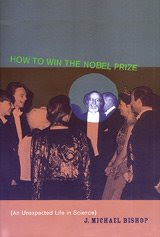I'm copying mercurialscribe on this...
At Delphi: “Know thyself - and thou shall know all the mysteries of the gods and of the universe.” Fact or fiction?
Click hereand fill out the form… do i know the mysteries of the universe? Let us see…
Monday, January 29, 2007
Sunday, January 28, 2007
*** January Is Cervical Health Awareness Month***
Hi!
Why am I bringing this up in my blog? Because of the new HPV/cervical cancer vaccine (hello! I'm studying immunology, of course this is right up my alley, haha!). I haven't had it yet, but I will in March when I have to go get my third hepatitis shot... So, spread the word!!! So, I've added some info and here are some helpful links too:
http://www.nccc-online.org/
http://www.cdc.gov/nip/vaccine/hpv/hpv-faqs.htm
Federal health programs such as Vaccines for Children (VFC) will cover the HPV vaccine. The VFC program provides free vaccines to children and teens under 19 years of age, who are either uninsured, Medicaid-eligible, American Indian, or Alaska Native.
Anyway... so go get your vaccine if you're a woman from ages 9-26... take your sister, cousin, niece, daughter, friend, etc. (unless you or they are pregnant, then wait until after the pregnancy is over). Because even though she may not be having sex yet or you are in a totally monogomous relationship and are never going to sleep with any other guy (ie: me), you never know, and it's better to be safe than sorry.
Side effects are just like any other vaccine (it might itch or hurt where they injected the stuff in your arm, or you may feel a little sick), but much better than cancer, which you could die of (yes, I'm also taking a cancer class this semester and am hyper aware of how horrible it is... aside from having one parent and almost all my grandparents die of it)...
Facts:
The human papilloma virus (HPV), is the most common sexually transmitted disease in the United States, and it can lead to cervical cancer. Many lawmakers in states throughout the Unted States want to now require girls to get a vaccine against it before entering Middle or High School.
Number of people affected by HPV: About 20 million in the United States. 80% of women by age 50 will test postive for HPV.
New cases each year: 6.2 million
Health effects: Usually causes no symptoms, but certain strains can lead to cervical cancer and/or genital warts.
Cervical cancer data in the United States: 9,700 new U.S. cases a year. 3,700 deaths.
New vaccine: Gardasil (Approved by the FDA on June 8, 2006), which is effective against four HPV strains. Two of the HPV types, Type 16 and 18 cause about 70 percent of cervical cancers. Combined, all four types of HPV in the Merck Gardasil product acount for about 90% of Genital warts.
Recommended recipients: Girls 11 and 12 years old, or before onset of sexual activity. The vaccine can be given to girls as young as 9. The vaccine is also advised for 13-to-26-year-olds.
Cost: $360 for a set of three shots over asix month period. Now being covered by vast majority of insurers. (Although some universities, cities, states are offering it for free!!)
Side effects: No serious ones reported; some pain at injection site.
Source: National Cervical Cancer Coalition and the CDC.
* 11% of United States women report that they do not have regular cervical cancer screenings
* In the United States, About 14,000 women are diagnosed with cervical cancer disease each year and more than 3,900 women die in the USA each year from this disease.
* In the majority of developing countries, cervical cancer remains the number-one cause of cancer-related deaths among women.
* A woman who does not have cervical cancer screening on a regular basis significantly increases her chances of developing cervical cancer.
* High-Risk HPV Types are directly related to cervical cancer, yet many women are unaware of what HPV is or the relationship it has to cervical cancer disease.
STILL GET YOUR ANNUAL PAP SMEAR!!
Get your Pap smear, even if you have received the HPV/cervical cancer vaccine.
A Cervical Cancer/HPV vaccine has been approved by the FDA. However, phone calls we receive on the NCCC Hotline indicate that you might be confused about what to do with regard to your regular Pap smear if you have been vaccinated. Some women, maybe you, have thought that Pap smears are no longer necessary. It is important to restate the facts even with the vaccine.
Even if a women has had the HPV/cervical cancer vaccine, she will continue to require a cervical cancer screen by the Pap test. At this time, this vaccine only protects against 70% of the potential cervical cancer cases. The Pap smear has reduced cervical cancer rates in the United States by more then 70%. Pap smears, like the one you receive regularly, is the single most effective cancer screen in the history of medicine. Remember to have your Pap test. Early detection saves lives.
Why am I bringing this up in my blog? Because of the new HPV/cervical cancer vaccine (hello! I'm studying immunology, of course this is right up my alley, haha!). I haven't had it yet, but I will in March when I have to go get my third hepatitis shot... So, spread the word!!! So, I've added some info and here are some helpful links too:
http://www.nccc-online.org/
http://www.cdc.gov/nip/vaccine/hpv/hpv-faqs.htm
Federal health programs such as Vaccines for Children (VFC) will cover the HPV vaccine. The VFC program provides free vaccines to children and teens under 19 years of age, who are either uninsured, Medicaid-eligible, American Indian, or Alaska Native.
Anyway... so go get your vaccine if you're a woman from ages 9-26... take your sister, cousin, niece, daughter, friend, etc. (unless you or they are pregnant, then wait until after the pregnancy is over). Because even though she may not be having sex yet or you are in a totally monogomous relationship and are never going to sleep with any other guy (ie: me), you never know, and it's better to be safe than sorry.
Side effects are just like any other vaccine (it might itch or hurt where they injected the stuff in your arm, or you may feel a little sick), but much better than cancer, which you could die of (yes, I'm also taking a cancer class this semester and am hyper aware of how horrible it is... aside from having one parent and almost all my grandparents die of it)...
Facts:
The human papilloma virus (HPV), is the most common sexually transmitted disease in the United States, and it can lead to cervical cancer. Many lawmakers in states throughout the Unted States want to now require girls to get a vaccine against it before entering Middle or High School.
Number of people affected by HPV: About 20 million in the United States. 80% of women by age 50 will test postive for HPV.
New cases each year: 6.2 million
Health effects: Usually causes no symptoms, but certain strains can lead to cervical cancer and/or genital warts.
Cervical cancer data in the United States: 9,700 new U.S. cases a year. 3,700 deaths.
New vaccine: Gardasil (Approved by the FDA on June 8, 2006), which is effective against four HPV strains. Two of the HPV types, Type 16 and 18 cause about 70 percent of cervical cancers. Combined, all four types of HPV in the Merck Gardasil product acount for about 90% of Genital warts.
Recommended recipients: Girls 11 and 12 years old, or before onset of sexual activity. The vaccine can be given to girls as young as 9. The vaccine is also advised for 13-to-26-year-olds.
Cost: $360 for a set of three shots over asix month period. Now being covered by vast majority of insurers. (Although some universities, cities, states are offering it for free!!)
Side effects: No serious ones reported; some pain at injection site.
Source: National Cervical Cancer Coalition and the CDC.
* 11% of United States women report that they do not have regular cervical cancer screenings
* In the United States, About 14,000 women are diagnosed with cervical cancer disease each year and more than 3,900 women die in the USA each year from this disease.
* In the majority of developing countries, cervical cancer remains the number-one cause of cancer-related deaths among women.
* A woman who does not have cervical cancer screening on a regular basis significantly increases her chances of developing cervical cancer.
* High-Risk HPV Types are directly related to cervical cancer, yet many women are unaware of what HPV is or the relationship it has to cervical cancer disease.
STILL GET YOUR ANNUAL PAP SMEAR!!
Get your Pap smear, even if you have received the HPV/cervical cancer vaccine.
A Cervical Cancer/HPV vaccine has been approved by the FDA. However, phone calls we receive on the NCCC Hotline indicate that you might be confused about what to do with regard to your regular Pap smear if you have been vaccinated. Some women, maybe you, have thought that Pap smears are no longer necessary. It is important to restate the facts even with the vaccine.
Even if a women has had the HPV/cervical cancer vaccine, she will continue to require a cervical cancer screen by the Pap test. At this time, this vaccine only protects against 70% of the potential cervical cancer cases. The Pap smear has reduced cervical cancer rates in the United States by more then 70%. Pap smears, like the one you receive regularly, is the single most effective cancer screen in the history of medicine. Remember to have your Pap test. Early detection saves lives.
Subscribe to:
Comments (Atom)





